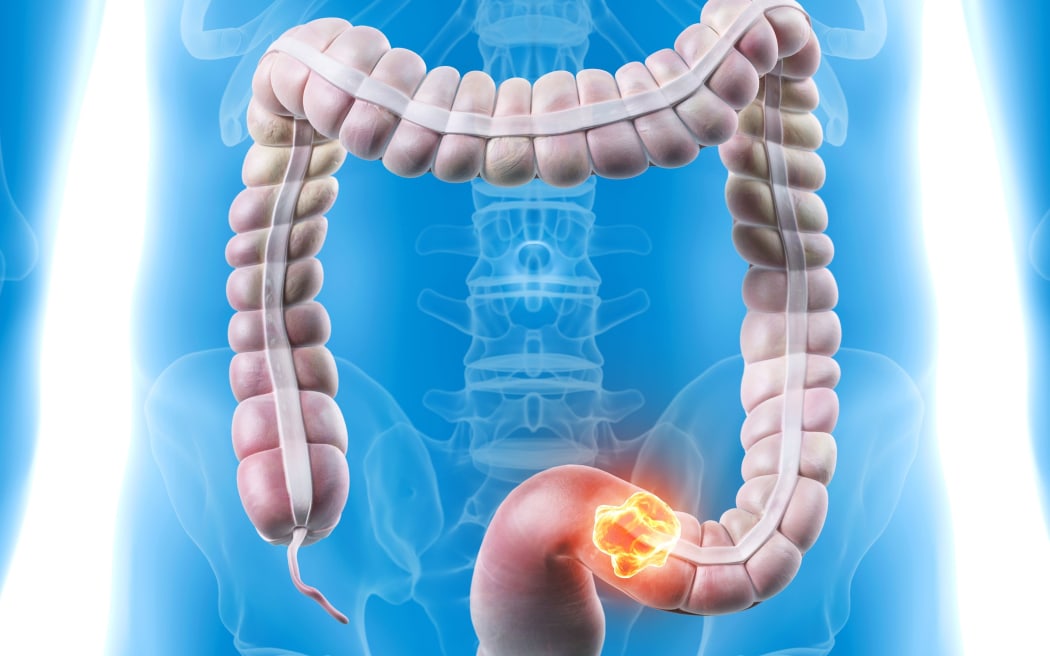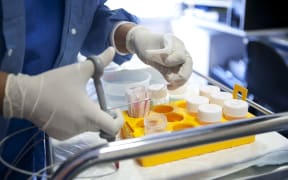A toxic bug discovered by New Zealand researchers could be the key to better treatment for bowel cancer.

An illustration showing cancer in the bowel. Photo: SKU / Science Photo Library
Scientists at Otago University's Christchurch campus have identified the bug they believe might cause the disease which claims the lives of 1300 New Zealanders every year.
They found a toxic form of a bacteria called Bacteroides fragilis in the gut of almost 80 percent of people with a per-cancerous lesion - a precursor to the disease.
Bacteroides fragilis is a common bug in our gut, and for the most part, helps with digestion and the general health of the colon. However in some people the bug produces a toxin that disrupts the cells that line the gut and starts the process of cancer in the bowel.
The disease is becoming increasingly common in people under the age of 50, which could be due to changes in our diet. Diet has a direct influence on our gut health, and the microorganisms living there.
In a world-first, the researchers tracked the progress of 150 people who had undergone a colonoscopy. They analysed the DNA of samples of bowel taken during the colonoscopies to see if Bacteroides fragilis was present. Between 12 and 15 years after their initial colonoscopy, 79 percent of patients with the toxic Bacteroides fragilis in their gut had developed low grade dysplasia, which is a type of pre-cancer.
Bowel cancer surgeon Professor Frank Frizelle headed the research team and describes the discovery as a 'game changer'.
"It gives us a clue as to what is actually driving the cancer, and in doing so, it gives us a possible means of being able to manage it," he said.
"The earlier you catch a disease, the better prognosis," said Professor Frizelle.
"We want to study this bug and its impact further with a view to using it as a way to identify people who are at the highest risk of developing the disease, before it takes hold."
It is hoped the discovery could lead to a life-saving vaccine or an early detection test.




